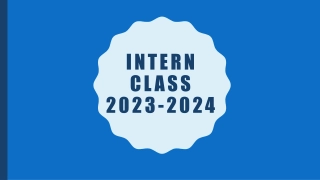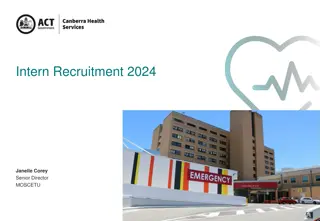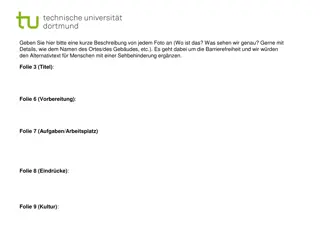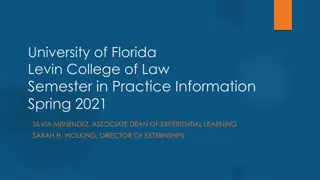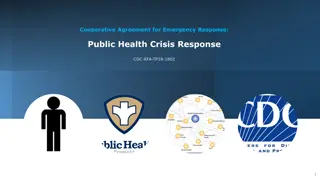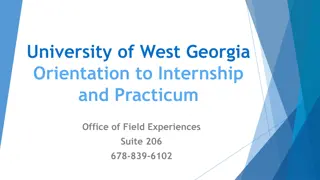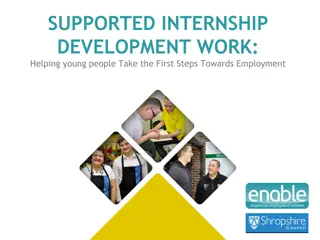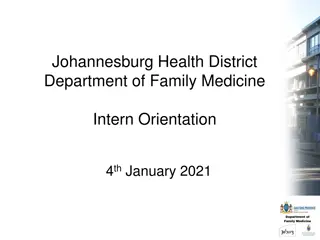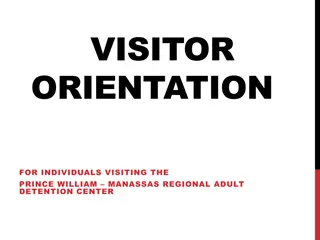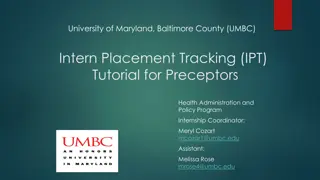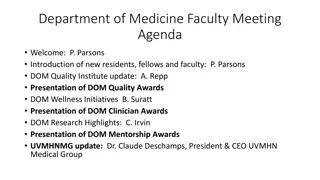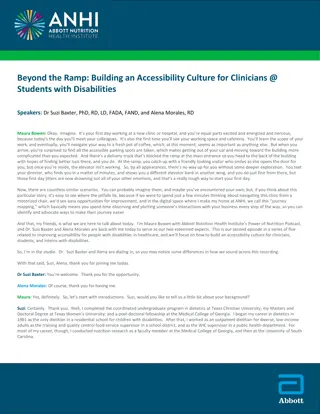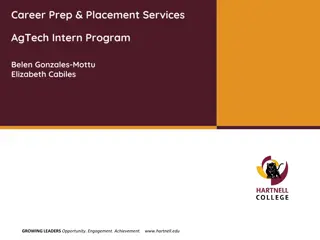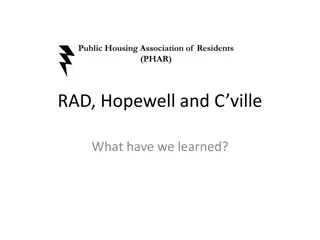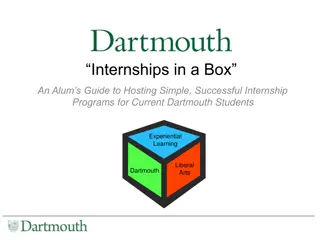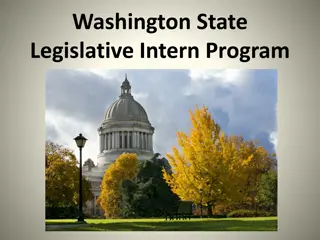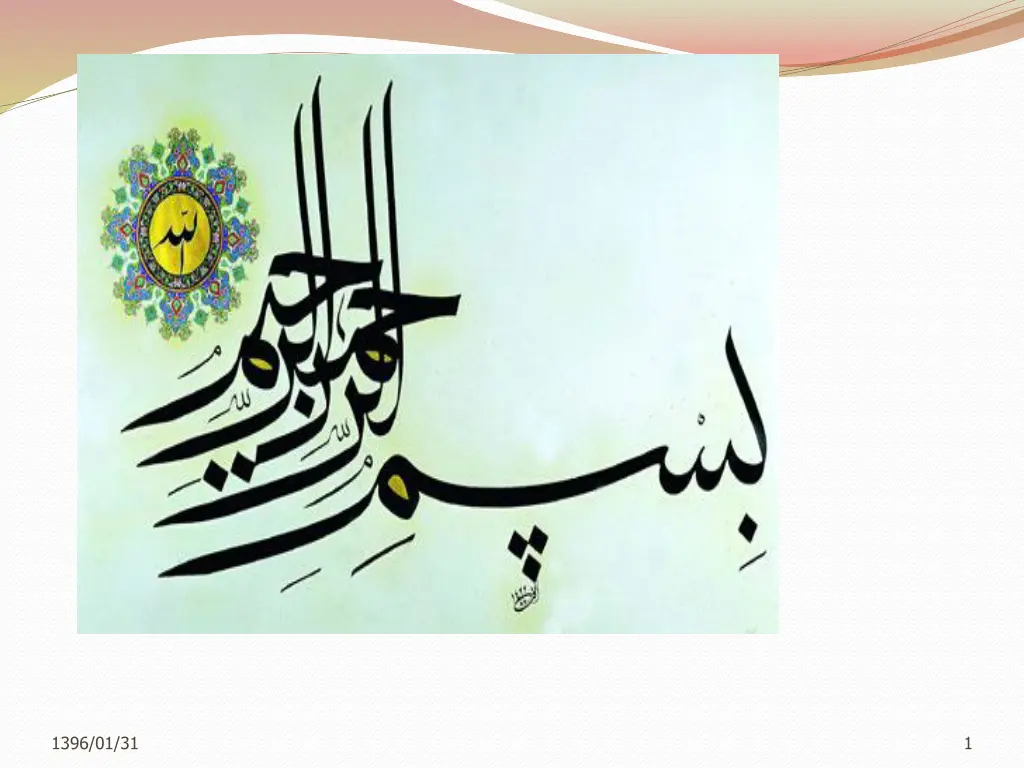
Understanding Febrile Seizures in Children
Learn about febrile seizures in children, including how to differentiate them from other conditions, criteria for diagnosis, the benign nature of simple febrile convulsions, and the importance of seeking medical attention during an episode. Find out about the criteria, risk factors, and management of febrile seizures to help parents and caretakers understand and respond appropriately.
Download Presentation

Please find below an Image/Link to download the presentation.
The content on the website is provided AS IS for your information and personal use only. It may not be sold, licensed, or shared on other websites without obtaining consent from the author. If you encounter any issues during the download, it is possible that the publisher has removed the file from their server.
You are allowed to download the files provided on this website for personal or commercial use, subject to the condition that they are used lawfully. All files are the property of their respective owners.
The content on the website is provided AS IS for your information and personal use only. It may not be sold, licensed, or shared on other websites without obtaining consent from the author.
E N D
Presentation Transcript
Prepared by: Dr Mostafavi N Department Of Pediatric Infectious Disease Isfahan University Of Medical Sciences 1396/01/31 2
Differentiating seizure from shaking child Repetitive rhythmic or single jerky movements about a joint Rarely facial or respiratory muscles Usually both sides of the body simultaneously No loss of consciousness Not be suppressible by touch 1396/01/31 5
Criteria for febrile seizures T> 38 C seizure Age 6mo.- 5 yr. No CNS infection No metabolic disorder( BS, Na, Ca, Mg) No previous afebrile seizures 1396/01/31 7
Febrile convulsion The majority in age of 12-18 mo. In age> 6 yr. is a diagnosis of exclusion The majority on the first day of illness (>90%) Mostly fever> 39 C, 25% 38- 39 C (threshold convulsive temperature) 1396/01/31 9
Benign nature of febrile seizure Simple FCs are benign events with excellent prognoses No evidence of increased mortality, hemiplegia, or mental retardation The risk of epilepsy only slightly higher than general population( 1%) Chief risk is recurrence in one-third of the children. No risk of decline in IQ, academic performance or behavioral abnormalities in recurrent simple FC 1396/01/31 10
Admission in emergency ward for 6-8 hr. To exclude CNS infection Fear of recurrence To investigate and treat other cause of fever To allay parental anxiety, especially if staying far from the hospital 1396/01/31 12
Admission in FC Most children with simple FC do not require admission Children with focal or prolonged seizures require more observation( risk of multiple seizures) A child that is running around is unlikely to have meningitis only discharged when the underlying fever be a minor illness the parents should be given clear instructions what to do in case the seizure recurs or the fever persists. 1396/01/31 13
Lab data BS: if LOC after seizure or prolonged fasting Na : if diarrhea/vomiting/dehydration/ renal failure/.. Ca: if Chvostek's and Trousseau's Signs/ CRF/ Hypo parathyroid Mg: resistant hypocalcemia, U/A, U/C: no source of fever+ age< 2yr, previous UTI, Renal anomaly CBC: no source of fever+ age< 3yr B/C: no source of fever+ age< 3yr+ WBC> 15 000 CXR: no source of fever+ WBC> 20 000 1396/01/31 15
Lumbar puncture Should be performed : Meningeal signs Other features of meningitis (nonresponsive, bulging fontanel, altered consciousness, Petechial rash, not well) Should be considered : Age 6-12 mon. Febrile status epilepticus May be considered: When the patient is on antibiotics When FC occur after the second day of illness Age of 12-18 mo and no source of fever Complex FC 1396/01/31 17
Complex FC Focal > 15 min > Once in 24 hr. 1396/01/31 18
Emergency CT scan Abnormal focal neurologic sign Signs of ICP 1396/01/31 20
Outpatient MRI Focal FC Prolonged FC Especially if delay development 1396/01/31 22
EEG in FC Focal FC Prolonged FC Abnormal development Family history of epilepsy Recurrent FC 1396/01/31 24
Prophylactic treatment? Moderate or high risk for epilepsy Intermittent diazepam 0.33 mg/kg/dose orally or 0.5 mg/kg/dose rectally every 8 hour for first 48 hour of fever In exceptional case that seizure recurs continuous phenobarbital 1396/01/31 26
Risk of epilepsy Moderate or high risk: Delay in development: 33% Focal complex FC: 29% Family history of idiopathic epilepsy: 18% Low risk: Other complex FC: 6% Recurrent (> 3 ) simple FC: 4% 1396/01/31 27
Provision of home benzodiazepines In prolonged febrile seizure(> 15 min) or > 3 risk factor: 1. age< 15 mo. 2. Epilepsy in a first degree relative 3. Febrile fits in a first degree relative 4. Fever <40 C during first febrile fit 5. Brief duration between onset of fever and initial seizure 6. Delay in development 7. Complex FC 8. Recurrent (> 3 ) simple FC Diazepam rectal gel (0.5 mg/kg) by parents at home if seizure > 5 min. 1396/01/31 29
Parent education for recurrence of seizure Remains calm. Note time of onset Loosen the child s clothing Left lateral position with the head lower Wipe any vomitus or secretion Not insert any object into the mouth Not give any fluids or drugs Stay near the child until the seizure is over If more than 3 risk factors, rectal diazepam 0.5 mg/kg if > 5 min If seizure not aborted, seek urgent medical help If the seizure is aborted, seek medical advise for the cause of the fever 1396/01/31 31
References Nelson textbook of pediatrics 2016 Japanese guideline for febrile convulsion Up to date 2016 1396/01/31 32
1396/01/31 33

